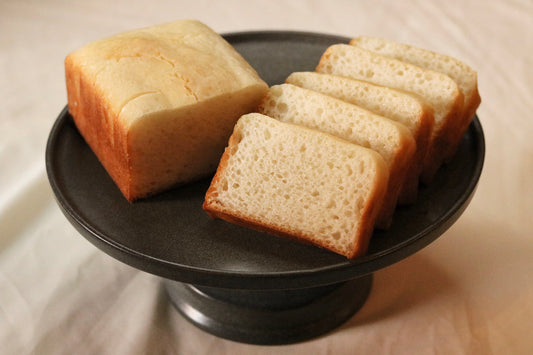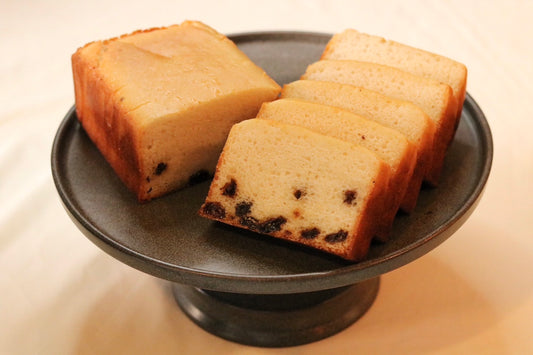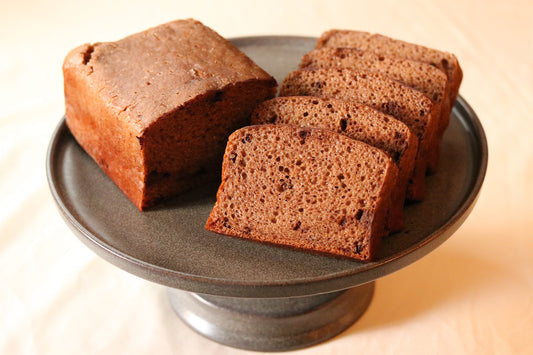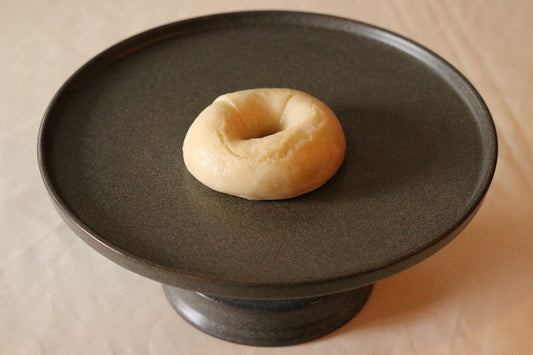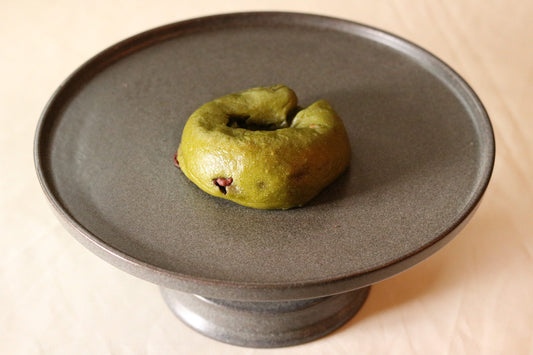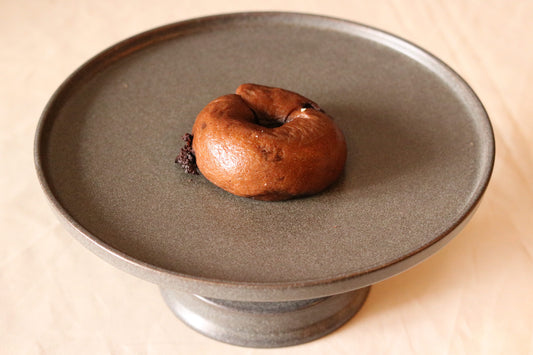What is a gluten-free diet? Effective methods and precautions

Gluten-free diet basics
What is gluten?

Gluten is a type of protein found in grains such as wheat, barley, and rye. It's found in foods like bread, pasta, and noodles, and is responsible for giving them a fluffy or chewy texture . However, for some people, gluten can cause digestive problems and should be avoided.
Definition of gluten-free
Gluten-free literally refers to foods and meals that do not contain gluten. Specifically, the following foods fall into this category:
| Rice, miscellaneous grains |
| Vegetables, fruits |
| Meat, seafood |
| Soy products such as tofu and natto |
| Nuts |
| Processed foods labeled gluten-free |
Gluten-free foods often use rice flour or soy flour instead of wheat flour . Gluten-free versions of bread, pasta, cakes, and more are also available, allowing you to enjoy a variety of meals while avoiding gluten.
The difference between gluten-free and carbohydrate-restricted

Gluten-free and carbohydrate-restricted diets both have in common the fact that they limit carbohydrate intake, but their goals and methods are different. The main purpose of gluten-free is to prevent the health damage caused by gluten . While wheat flour products are avoided, carbohydrates such as rice and potatoes can be consumed.
On the other hand, a low-carb diet aims to achieve weight loss by restricting carbohydrate intake . This includes not only bread and noodles, but also rice and potatoes. The table below summarizes the main differences between gluten-free and low-carb diets.
| item | Gluten-free/low-carb |
|---|---|
| the purpose | Preventing health damage caused by gluten/Diet by limiting carbohydrate intake |
| Restrictions | Foods made from wheat, barley, or rye/foods that contain a lot of carbohydrates (bread, noodles, rice, etc.) |
| alternative food | Foods made with rice flour, soy flour, etc. / Low-sugar vegetables, protein foods, etc. |
It is important to understand these differences and choose a diet that suits your goals. If you are going gluten-free for medical reasons, it is important to continue it over the long term while paying attention to nutritional balance.
Why gluten-free diets are effective
One of the reasons why gluten-free diets are gaining attention is their effectiveness in weight loss. Here, we will explain in detail how avoiding gluten can help with weight management.
Increased metabolism and reduced fat accumulation

A gluten-free diet is believed to improve metabolism and suppress fat accumulation . Wheat products, which contain a lot of gluten, are said to take a long time to digest and put a strain on the intestinal environment.
On the other hand, gluten-free foods are easily digested and absorbed, and are expected to boost metabolism . Furthermore, a component called amylopectin A contained in wheat causes a rapid rise in blood sugar levels, leading to excessive insulin secretion. Since insulin promotes fat accumulation , limiting gluten can help change your body's constitution to one that is less prone to fat accumulation.
Naturally reduces calorie intake
When you follow a gluten-free diet, you naturally tend to consume fewer calories. This is because foods that contain a lot of gluten are often high in calories. Bread, pasta, pizza, cake, etc. are high in calories and can easily lead to weight gain if eaten in excess.
On the other hand, gluten-free staple foods such as rice, grains, and vegetables are low in calories even when eaten in the same amount . Also, the protein gliadin contained in gluten has the effect of stimulating appetite. By avoiding gluten, you will naturally eat less, which will lead to a reduction in calorie intake .
Improves intestinal environment and detox effect

A gluten-free diet can also improve your intestinal environment and detoxify your body. Gluten can be a digestive burden for some people, causing intestinal inflammation and irritable bowel syndrome. Avoiding gluten can help calm intestinal inflammation and restore a healthy intestinal environment .
Additionally, because gluten-free diets often focus on natural foods, they can also have a detoxifying effect, eliminating waste and toxins from the body . By improving your intestinal environment and purifying your body, you can enjoy other health benefits besides weight loss, such as improved metabolism and skin condition.
As mentioned above, a gluten-free diet supports weight loss in many ways , including boosting metabolism, suppressing fat accumulation, naturally restricting calories, and improving the intestinal environment . By reviewing the quality of your diet and avoiding gluten, you can aim for healthy and reasonable weight management.
How to properly follow a gluten-free diet
When starting a gluten-free diet, it's important to know the right way to do it. Here, we'll explain in detail how to replace foods containing gluten, the importance of a balanced diet, and how to choose foods when eating out.
Gluten-containing foods and alternatives

To practice a gluten-free diet, you first need to understand which foods contain gluten and choose appropriate substitutes. Below we will introduce some common gluten-containing foods and how to replace them.
Bread and noodles → rice flour and miscellaneous grain products
Bread and noodles contain a lot of gluten because they are made primarily from wheat flour. The key is to choose products made with rice flour or multigrain flour instead.
In recent years, many gluten-free breads and noodles have been sold, so try to incorporate them into your diet. Natural carbohydrates such as rice, potatoes, and sweet potatoes can also be used as substitutes for bread and noodles.
Processed foods → Products made with rice flour and soy flour
Many processed foods contain gluten because they contain wheat flour. Be especially careful with roux, sauces, and dressings. Instead, choose processed foods made with rice flour or soy flour .
Recently, the number of products labeled as gluten-free has been increasing, so it is important to check the label before purchasing. You can also avoid gluten by using homemade seasonings and spices.
The importance of a balanced diet

When following a gluten-free diet, it is very important to eat a nutritionally balanced diet . Simply eliminating gluten-containing foods can result in a lack of necessary nutrients.
Wheat products are particularly rich in dietary fiber, B vitamins, and iron. To make up for these deficiencies, it's important to actively incorporate a variety of foods, including vegetables, fruits, beans, and grains . Also, aim for a balanced diet, consuming moderate amounts of meat, fish, eggs, and soy products as protein sources. Taking supplements, if necessary, is another option.
How to choose when eating out or at a convenience store

To maintain a gluten-free diet, you also need to be careful about the food you choose when eating out or at convenience stores. When at a restaurant, check the ingredients on the menu and choose gluten-free foods .
It's also important to ask when ordering if gluten-free meals are available. At convenience stores, it's important to check the labels and choose products that are labeled gluten-free . Another good option is to choose natural foods such as salads, fruits, and nuts. However, since it's difficult to guarantee complete gluten-free status, it's important to avoid eating out or buying convenience store food frequently and instead focus on cooking at home .
To properly follow a gluten-free diet, it is essential to deepen your knowledge of gluten-containing foods and choose appropriate substitutes. At the same time, by eating a balanced diet and carefully selecting foods when eating out, you can live a healthy gluten-free life.
Gluten-free diet precautions

A gluten-free diet is an effective way to aim for a healthy eating lifestyle, but there are some things to be aware of. Here we will explain in detail three points to be aware of before starting a gluten-free diet.
Nutritional imbalance due to sudden restriction

When starting a gluten-free diet, suddenly and drastically restricting gluten-containing foods can lead to nutritional imbalances . Wheat products contain important nutrients such as dietary fiber, B vitamins, and iron.
A deficiency in these nutrients can lead to health problems such as fatigue, anemia, and constipation . When starting a gluten-free diet, it is important to choose the right substitute foods and make up for any nutrients that may be lacking. Try to eat a balanced diet that includes vegetables, fruits, beans, and grains. One way to do this is to take supplements, if necessary.
Risks when gluten sensitivity/intolerance is not a factor

Those who have not been diagnosed with gluten sensitivity or intolerance should be careful about simply embarking on a gluten-free diet. Gluten is not a harmful substance for healthy people.
Rather, the dietary fiber and nutrients contained in wheat play an important role in maintaining health . A gluten-free diet can lead to a deficiency of these nutrients, which can increase health risks . Also, gluten-free foods are generally expensive and sometimes difficult to obtain.
Unnecessary restrictions can increase financial and mental burdens , so if you suspect you have a gluten sensitivity or intolerance, it is important to consult a doctor and undergo appropriate testing.
Beware of hidden gluten

One thing to be aware of when following a gluten-free diet is "hidden gluten." Hidden gluten refers to foods that appear to be gluten-free at first glance, but actually contain ingredients derived from wheat .
For example, gluten can be found in foods you might not expect, such as sauces, dressings, condiments, and processed meat products. Gluten can also be mixed into foods that are originally gluten-free through contamination.
When following a gluten-free diet, it's important to carefully check food labels and understand the ingredients . Additionally, when eating out at restaurants or convenience stores, be sure to ask the staff if they offer gluten-free meals . By being aware of hidden gluten, you can more reliably avoid gluten.
It's important to follow a gluten-free diet the right way. It's important to understand the important points to be aware of, such as nutritional imbalances caused by sudden restrictions, unnecessary risks, and hidden gluten, and to strive for a balanced diet . By following a gluten-free diet within your limits and in line with your constitution and health condition, you can lead a healthy lifestyle.
Diet habits other than gluten-free
A gluten-free diet is effective for healthy weight management, but it's not enough on its own. Here, we'll introduce more effective and sustainable diet habits to combine with a gluten-free diet. Aim for a healthy body by reviewing your overall lifestyle habits, including moderate exercise, stress management, and adequate sleep.
The effects of moderate exercise

It is important to incorporate moderate exercise into your gluten-free diet. Exercise not only increases calorie consumption, but also helps maintain and increase muscle mass and raises your basal metabolic rate.
Exercise also has the potential to relieve stress and relax , helping to keep both your body and mind healthy. We recommend combining 30 minutes to an hour of aerobic exercise (walking, jogging, swimming, etc.) every day with strength training two to three times a week. It's important to continue exercising in a way that suits you, without overexerting yourself .
Stress management and relaxation

Managing stress and relaxing are also essential for successful weight loss. Chronic stress increases the production of cortisol, which leads to fat storage and increased appetite . Stress can also lead to emotional overeating, which can hinder weight loss efforts. Try these strategies to manage stress:
- Relaxation techniques such as deep breathing and meditation
- Enjoy your hobbies and favorite activities - Connect with friends and family
- Spend time in nature
It's important to find ways to relieve stress that work for you and make sure you have plenty of time to relax . Staying calm is also important for maintaining healthy eating and exercise habits.
The importance of getting enough sleep
Adequate sleep is also essential for the success of a gluten-free diet. Lack of sleep disrupts hormone balance, increases appetite, and slows metabolism . Lack of sleep also increases stress and fatigue, and negatively impacts athletic performance.
To help maintain healthy weight, try these sleep habits:
- Ensure you get 7-8 hours of sleep every day
- Maintain regular bedtimes and wake-up times
- Keep your bedroom dark, quiet, and comfortable
- Avoid caffeine and electronic devices before bedtime
Adequate, quality sleep is essential for successful weight loss and maintaining good health . By establishing a healthy lifestyle and creating a comfortable sleeping environment, you can achieve a more effective weight loss. A gluten-free diet is an important way to improve the quality of your diet, but it's not enough.
Reviewing your overall lifestyle, including moderate exercise, stress management, and adequate sleep, is essential for a sustainable, healthy diet . By incorporating these habits into your gluten-free diet, you can achieve a healthy mind and body and achieve your ideal body.
summary

The gluten-free diet is a diet that restricts the intake of gluten, a protein found in grains such as wheat, barley, and rye. Avoiding gluten can improve your physical condition and help you lose weight. The benefits are wide-ranging, including improved metabolism, suppression of fat accumulation, natural calorie restriction, and improved intestinal environment.
When practicing a gluten-free diet, it is important to understand which foods contain gluten and choose appropriate substitutes. Aim for a balanced nutritional intake by focusing on a diet centered on rice flour, millet, and whole foods.
Additionally, while the options for eating out and at convenience stores are increasing, it is difficult to guarantee a completely gluten-free diet, so a diet centered on cooking at home is recommended. However, there are also some points to be aware of when going on a gluten-free diet. You need to be careful of things like nutritional imbalances caused by sudden restrictions, unnecessary risks, and hidden gluten.
It is wise to practice gluten-free dieting within a reasonable range, taking into account your constitution and health condition. Furthermore, incorporating healthy lifestyle habits such as moderate exercise, stress management, and adequate sleep in addition to a gluten-free diet will make for a more effective and sustainable diet.
Improving the quality of your diet and reviewing your overall lifestyle are the keys to achieving a healthy, ideal body. Going gluten-free is not just a dietary restriction; it is a choice that allows you to face your body and live a healthy life. With the right knowledge and a balanced approach, you will be able to maximize the benefits of a gluten-free lifestyle. Find the gluten-free style that suits you and live a healthy, radiant life in both body and mind.
Gluten-free rice flour menus are available for purchase online at "Komeko's Palette"

Komeko's Palette, an online store for gluten-free and rice flour menus, is recommended for those who want to start a gluten-free diet or those who suffer from wheat allergies. Komeko's Palette offers healthy, safe, and delicious products with three key features: completely additive-free, wheat-free (gluten-free), and refined sugar-free .
At Komeko's Palette, we do not use any food additives and strive to create products that value the natural flavor and nutrition of the ingredients . Each product is carefully made so that it can be enjoyed safely by everyone, from children to the elderly.
Furthermore, we do not use any wheat in any of our products, and we place great importance on creating products that can be safely consumed by those on a gluten-free diet or those with wheat allergies . Instead of wheat, we use nutritious rice flour and other natural ingredients that are gentle on the body. We strive to create a taste that will make you feel that our products are "delicious even though they are wheat-free," by making repeated efforts to bring out the moist texture and flavor of the ingredients.
We do not use any refined sugar, and instead use natural sweeteners such as beet sugar and cane sugar to avoid a sudden rise in blood sugar levels . The natural sweetness brings out the flavor of the ingredients themselves, creating a mellow and deep taste.
They are committed to using a manufacturing method that does not use refined sugar, as they want to deliver sweets and foods that are not just sweet but also healthy and can be enjoyed every day. Komeko's Palette is the perfect online shopping site for those who want to live a gluten-free and healthy diet .
Please try out our many products, which are completely additive-free, wheat-free, and refined sugar-free. You're sure to discover that you can still enjoy a delicious and healthy diet even while gluten-free. Why not start a new gluten-free lifestyle with Komeko's Palette?
